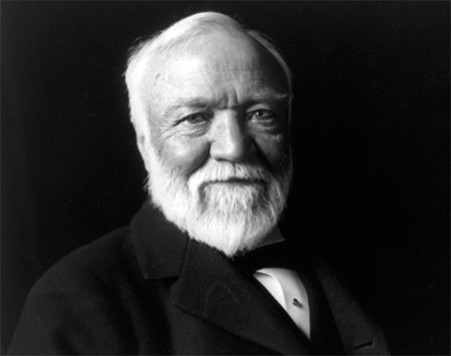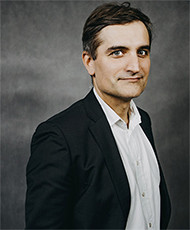
Praca zespołowa to umiejętność współpracy na rzecz wspólnej wizji.
Zdolność do ukierunkowania indywidualnych osiągnięć na cele organizacyjne.
To paliwo, które pozwala zwykłym ludziom osiągać niezwykłe rezultaty.
Andrew Carnegie
Zainteresowania badawcze
Teorie świadomości, neuronalne korelaty świadomości, substytucja sensoryczna i inne urządzenia do rehabilitacji osobistej.
Wykształcenie
- Profesor zwyczajny nauk społecznych, 2021
- Doktor habilitowany nauk społecznych, Uniwersytet Jagielloński, 2014
- Doktor nauk humanistycznych, Uniwersytet Jagielloński, 2004
Zajmowane stanowiska
- 2020 - obecnie - dyrektor Centrum Badań Mózgu, UJ
- 2020 - obecnie - prodziekan ds. naukowych, Wydział Filozoficzny UJ
Towarzystwa Naukowe
- Europejskie Towarzystwo Psychologii Poznawczej - prezydent elekt (2023-2024), członek zwyczajny, były członek komitetu wykonawczego (2010-2018)
- Towarzystwo Psychonomiczne, członek stowarzyszony
- Stowarzyszenie Badań Naukowych nad Świadomością - członek dożywotni
- Komitet Psychologii Polskiej Akademii Nauk - członek
Nagrody i stypendia
2019 - Nagroda Narodowego Centrum Nauki w dziedzinie nauk humanistycznych i społecznych, październik 2019 r.
2014 - Nagroda Malewskiego, przyznana przez Komitet Psychologii Polskiej Akademii Nauk, czerwiec 2014
2010 - 2011 - stypendium Ministra Nauki i Szkolnictwa Wyższego na pobyt badawczy na ULB
2005 - Nagroda Polityki "Zostańcie z nami", stypendium dla młodych polskich naukowców
2005 - Fundacja Nauki Polskiej, stypendium dla młodych naukowców
Wybrane granty
- The neural architecture of consciousness (vice-chair of the Action, member of the Management Committee), project funded under COST European Cooperation in Science and Technology, network COST CA8106, 2019-2023
- Early and late correlates of consciousness. Research of structural and functional connections involved in conscious experiences using MRIe and TMS. (role: PI), project NCN OPUS 2017/27/B/HS6/00937, 2018-2023, 1.717.940 PLN
- Cognitive and neural plasticity and the subjective experience. Interdisciplinary analysis of sensory substitution. (role: PI) project NCN OPUS 2016/23/B/HS6/00275 2017-2020, 1.457.500 PLN
- Cognitive and neural mechanisms of metacognitive awareness (role: PI) project NCN HARMONIA 2014/14/M/HS6/00911, 2015-2018, 958.750 PLN
- The Dynamics of Consciousness. A Cognitive Model of Conscious Experience Formation (role: PI) project NCN SONATA BIS 2012/07/E/HS6/01037, 2013-2017, 642 880 PLN
Recenzje
- Ad hoc reviews for multiple scientific journals, including e.g.: Nature Communication; Nature Human Behaviour; Journal of Experimental Psychology: General; NeuroImage; Cognition; Cognitive Science; Neuroscience of Consciousness; Consciousness and Cognition; Frontiers in Psychology; Quarterly Journal of Experimental Psychology
- Consulting Editor, member of the Editorial Board, Psychology of Consciousness: Theory, Research and Practice (PSYCON, APA journal) – 2019 – 2023
- Member of the reviewers panel for the National Science Centre, Poland, National Centre for Science and Development, Poland, National Agency for International Exchange, Poland, Ministry of Science and Higher Education, Poland
- reviewer for European Commission (ERC, MCSA, COST), member of the R&D Units Evaluation 2017-2018 panel for Fundação para a Ciência e a Tecnologia (FCT), Portugal; Italian research assessment VQR (2011-2014).
Wybrane publikacje
Pełna lista publikacji dostępna na Scholar account
- Shahbakhti, M., Beiramvand, M., Nasiri, E., Far S.M., Chen, W., Sole-Casals, J., Wierzchoń, M., Broniec-Wojcik, A., Augustyniak, P. & Marozas, V. (2023). Fusion of EEG and Eye Blink Analysis for Detection of Driver Fatigue. IEEE Transactions on Neural Systems & Rehabilitation Engineering, doi: 10.1109/TNSRE.2023.3267114
- Hobot, J., Skóra, Z., Wierzchoń, M. & Sandberg, K. (2023). Continuous Theta Burst Stimulation to the left anterior medial prefrontal cortex influences metacognitive efficiency. NeuroImage, 10.1016/j.neuroimage.2023.119991
- Szczotka, J. & Wierzchoń, M. (2022). Splitting the unity of bodily self - towards a comprehensive review of phenomenology and psychopathology of heautoscopy. Psychopathology, doi: 10.1159/000526869
- Cieplińska, N., Janowski., L., de Moor, K. & Wierzchoń, M. (2022). Long term video QoE assesment studies: a systematic review. IEEE Access, 10, 133883-133897, doi: 10.1109/ACCESS.2022.3231747
- Łukowska, M., Kałwak, W., Osiński, D., Janik, J. & Wierzchoń, M. (2022). How to teach a visually impaired person to hear colours? Multidimensional training for a colour-to-sound sensory substitution device – design and evaluation. International Journal of Human - Computer Studies, 10.1016/j.ijhcs.2022.102925
- Koculak, M. & Wierzchoń, M. (2022). How much consciousness is there in complexity. Frontiers in Psychology, 13, 983315, 10.3389/fpsyg.2022.983315
- Koculak, M. i Wierzchoń, M. (2022). Consciousness science needs some rest: How to use resting-state paradigm to impove theories and measures of consciousness. Frontiers in Neuroscience, 16:836758, 10.3389/ fnins.2022.836758
- Shahbakhti, M., Beiramvand, M., Nazari, M., Broniec-Wójcik, A., Augustyniak, P., Rodrigues, A.S., Wierzchoń, M. & Marozas, V. (2021). VME-DWT: An Efficient Algorithm for Detection and Elimination of Eye Blink from Short Segments of Single EEG Channel. IEEE Transactions on Neural Systems & Rehabilitation Engineering, 29, 408-417, doi: 10.1109/TNSRE.2021.3054733
- Hobot, J., Klincewicz, M., Sandberg, K. & Wierzchoń, M. (2021). Causal inferences in repetitive transcranial magnetic stimulation research: Challenges and perspectives. Frontiers in Human Neuroscience, 14: 574, doi: 3389/fnhum.2020.586448
- Skóra, Z., Ciupińska, K., del Pin, S.H., Overgaard, M. & Wierzchoń, M. (2021). Investigating the validity of the Perceptual Awareness Scale: the effect of the task related difficulty on subjective rating. Consciousness & Cognition, 95, 103197. doi: 10.1016/j.concog.2021.103197
- Del Pin, S.H., Skóra, Z., Sandberg, K., Overgaard, M. & Wierzchoń, M. (2021). Comparing theories of consciousness: Why it matters and how to do it. Neuroscience of Consciousness. 2021(2), niab019, doi:10.1093/nc/niab019
- Skóra, Z., Del Pin, S.H., Derda, M., Koculak, M., Rutiku, R. & Wierzchoń, M. (2021). No validity without a theory - a critical look at subjective measures of consciousness. Neuroscience of Consciousness, 2021(1), niab009, doi:10.1093/nc/niab009
- Hobot, J., Koculak, M., Paulewicz, B., Sandberg, K. & Wierzchoń, M. (2020). Transcranial Magnetic Stimulationinduced motor activity influences visual awareness judgments. Frontiers in Neuroscience, 10.3389/fnins.2020.580712
- Majchrowicz, B. & Wierzchoń, M. (2021). Sensory attenuation over action outcomes of varying amplitude and valence. Consciousness and Cognition, 87, 103058, doi: 10.1016/j.concog.2020.103058
- Siedlecka, M., Skóra, Z., Paulewicz, B., Fijałkowska, S., Timmermans, B. & Wierzchoń, M. (2019). Responses improve the accuracy of confidence judgements in memory tasks. Journal of Experiemental Psychology: Learning, Memory, and Cognition,45(4), 712-723. doi: 10.1037/xlm0000608
- Siedlecka, M., Spychała, N., Łukowska, M., Wiercioch, K. & Wierzchoń, M. (2018). Rubber hand illusion increases pain caused by electric stimuli. Journal of Pain, 19(1),35-45. doi: 10.1016/j.jpain.2017.08.005
- Łukowska, M., Sznajder, M. & Wierzchoń, M. (2018). Error-related cardiac response as information for visibility judgements, Scientific Reports, 8, 1131, doi: 10.1038/s41598-018-19144-0
- Siedlecka M, Paulewicz B & Wierzchoń M (2016). But I Was So Sure! Metacognitive Judgments Are Less Accurate Given Prospectively Than Retrospectively.. Front. Psychol. 7:218. doi: 10.3389/fpsyg.2016.00218
- Wierzchoń, M., Paulewicz, B., Asanowicz, D., Timmermans, B. i Cleeremans, A. (2014). Different subjective awareness measures demonstrate the influence of visual identification on perceptual awareness. Consciousness and Cognition, 27, 109-120.
- Paulewicz, B. & Wierzchoń, M. (2015). Casual Considerations in experimental studies on consciousness. Humana Mente, 29, 227-242.
- Siedlecka, M., Klimza, A., Łukowska, M., i Wierzchoń, M. (2014). Rubber Hand Illusion Reduces Discomfort Caused by Cold Stimulus. PLoS ONE 9(10): e109909. doi:10.1371/journal.pone.0109909
- Wierzchoń, M., Asanowicz, D., Paulewicz, B. & Cleeremans, A. (2012). Subjective measures of consciousness in artificial grammar learning task. Consciousness & Cognition, 21(3), 1141-53, doi: 10.1016/j.concog.2012.05.012


